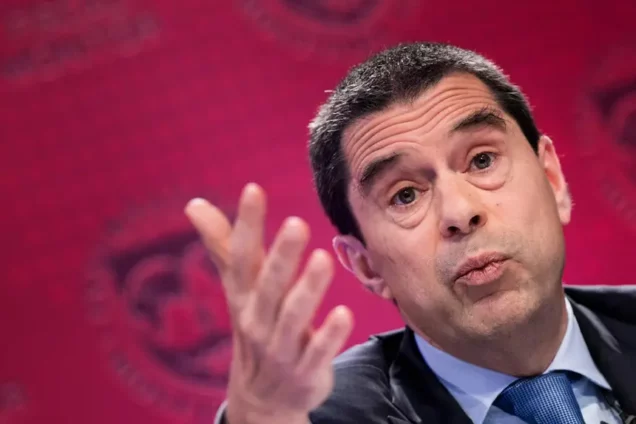The International Monetary Fund is advising African countries including Ghana to rethink their fiscal policy following repeated external and domestic shocks from rising debt vulnerabilities in their economies.
Under unchanged policies, the Fund said, the region’s public debt-to-Gross Domestic Product (GDP) ratio will continue to trend upward, increasing by over 10 percentage points over the next five years.
This it warns would crowd out private investment, raise sovereign risk, and limit countries’ ability to invest in human and physical capital.
Speaking at the 12th African Fiscal Forum, the Director of the Fiscal Affairs Department at the IMF, Vítor Gaspar, called for the design of credible medium-term fiscal strategies that could help preserve fiscal sustainability and rebuild buffers while addressing the region’s development goals.
“The IMF has been asking the question, how to pay for it all [debt]; the question is relevant for all of the IMF membership. But it is particularly pressing for countries in Sub-Saharan Africa with a large development spend in the months. From mid-2022 to the end of 2023, no country from Sub-Saharan Africa issued bonds in the Eurobond market. That was a manifestation of others breaking funding squeeze that has changed in January [2024] and February [2024] with the number of countries issuing significant amounts”.
“But the coupon rates and yields in secondary markets have stayed very high”, he added.
He continued that the debt signals have elevated bond risks, stressing, “I have already emphasised that spending pressures for development are particularly high for Sub-Saharan Africa. Elevated in forex trade and a strong dollar makes servicing dollar denominated debt more expensive.”
He mentioned that aid flows and financing from China have been declining for some years.
This year’s Forum focused on how to set fiscal targets and determine the pace and composition of the potential adjustment depending on countries’ specific circumstances. The discussion also explored the role of institutions in addressing implementation challenges and how those institutions can be strengthened.
The panelists were made up of Daves de Sousa, Minister of Finance, Angola; Koen Doens, Director General for International Partnerships, European Commission; Njuguna Ndung’u, Minister of Finance, Kenya and Fati N’Zi-Hassane, Executive Director, Oxfam Africa.
Latest Stories
-
Joyful Ethiopians and Eritreans embrace at rare border reopening
3 minutes -
Police officers charged with murder of Kenyan blogger
21 minutes -
US Tennis star Katrina Adams launches “Own The Arena” book in Accra
30 minutes -
US Supreme Court allows Trump to resume deportations to third countries
31 minutes -
US says Kilmar Ábrego García will ‘never go free’ after judge orders his release
44 minutes -
Ignore Kennedy Agyapong’s claims; MMDCEs support not sponsored – Bawumia’s spokesman
52 minutes -
Daily insight for CEOs: Strategic Agility – Thriving amid constant change
1 hour -
Mother and children suffer severe burns, appeal for support for life-saving treatment
1 hour -
‘Flower Power; An Arewa Story from the South’ opens at Worldfaze in Accra
1 hour -
KNUST researchers highlight potential areas for future research in Heterotis (Supaku) culture
2 hours -
CEO of Magmens Coutre in Obuasi wins Global Woman Fashion Entrepreneur of the Year Award
2 hours -
NPP will not make Bawumia a rubber stamp for other candidates – Haruna Mohammed
2 hours -
Health experts strengthen Ghana’s blood care system to tackle cancer, sickle cell, and donation myths
2 hours -
We’ll crack the whip at the appropriate time – NPP warns amid internal rifts
2 hours -
Rawlings’ values must be our guide – Asiedu Nketia
3 hours

